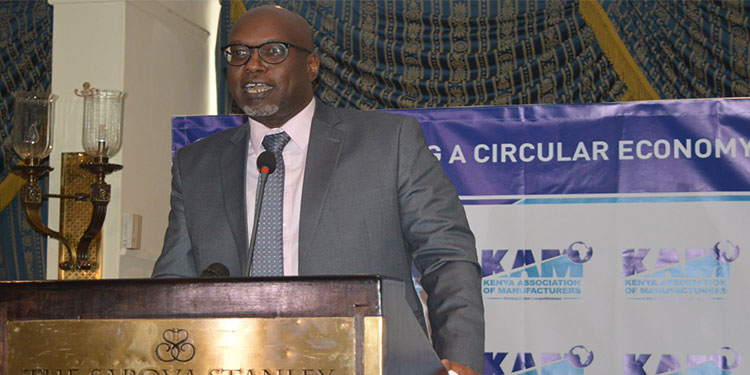 The plan, dubbed Kenya Plastic Action Plan, is a private sector-led Policy and Action Plan that seeks to enable a circular economy for the environmentally sustainable use and recycling of plastics in Kenya.
The plan, dubbed Kenya Plastic Action Plan, is a private sector-led Policy and Action Plan that seeks to enable a circular economy for the environmentally sustainable use and recycling of plastics in Kenya.
Speaking during the launch, Environment Chief Administrative Secretary, Mr Mohamed Elmi noted that the government is keen on driving Kenya into a zero-waste management policy.
According to a statement from the Kenya Association of Manufacturers (KAM) the plan identifies specific actions that the public and private sector should undertake to achieve a circular economy.
This includes waste management at the county level, formation and regulation of Extended Producer Responsibility schemes and establishment of recycling value chains and standards.
The Action Plan identifies the specific actions that the public and private sector should undertake to achieve a circular economy. Circular economy aims to remove waste, not just from manufacturing processes, as lean management aspires to do, but methodically, throughout the life cycles and uses of products and their components.
Also at the event, KAM Chair Sachen Gudka noted that local manufacturers are now beginning to apply circular economy in their operations as they pursue to promote sustainable waste management.
“The role of the manufacturing sector in the circular economy rests in sustainable waste management and Extended Producer Responsibility Schemes. A huge opportunity remains in the development of a waste management and recycling industry in Kenya that would contribute to the Big 4 Agenda,” said Mr Gudka.
The KAM Chair added that the plan will set the footstep for proper management of all waste in the country.
KAM is also a signatory of the Oceans Plastics Charter, which is a commitment to sustainable design, production and after-use markets, plastic collection management and other systems infrastructure through Extended Producer Responsibility schemes and supporting research and innovation and new technologies.



